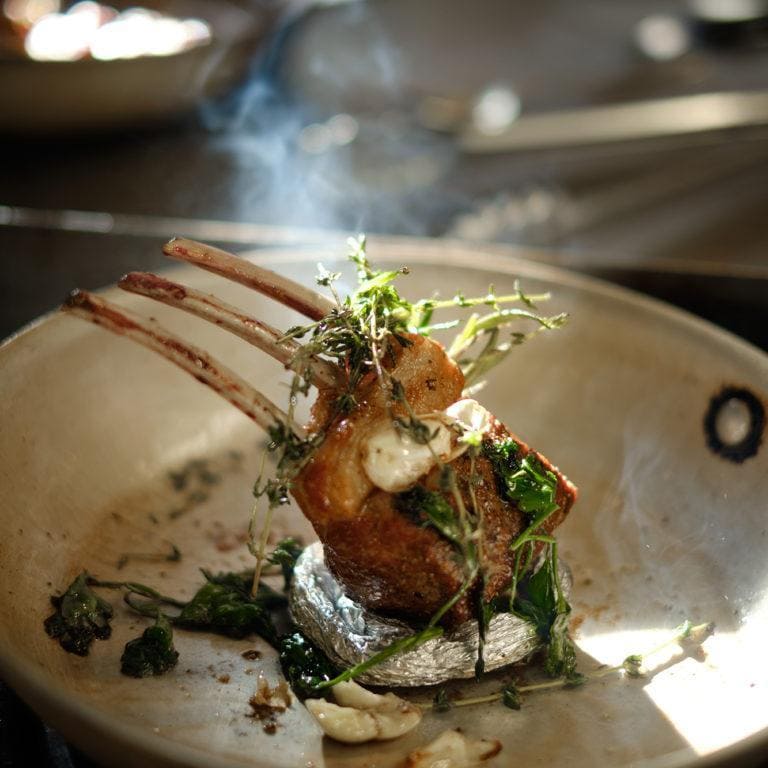In a blue warehouse in Whitefield, Nicholas Repenning practices a centuries-old tradition of cultivating fungi to create miso.
A New Jersey native, Repenning met his wife, Mika, while they were both farming in her native Japan. Spurred to move to Maine in the wake of the nuclear accidents in Fukushima, they missed the taste of, and the culture around, traditional Japanese miso.
In 2015, they began making fermented soybean products and selling them under their new company name, Go-en Fermented Foods. In Japan, miso is considered a regional product, where flavor, color, and identity are affected by relative area and temperature. The couple base their signature miso on the variety found in northern Japan, typically a red miso with a deep umami flavor.
At Go-en, propagating koji, a fungus found in rice plants, always comes first. “Essentially, I’m a koji farmer,” says Repenning. Koji is the microbial conductor that lies at the heart of making miso, soy sauce, sake, and tamari.
To propagate koji for use in Go-en products, Repenning adds fungal spores to steamed short-grain rice. While spores colonize the rice substrate, he closely monitors temperature and humidity to make sure the fungus thrives and fully consumes the rice, a process that takes roughly two days. The koji is combined with boiled soybeans and the enzymes break down the soybeans’ carbohydrates and proteins to create the rich, salty, and umami flavor of miso.
Go-en’s miso is fermented for at least three seasons. The microbes are very active in the warm months, but they slow as the weather cools. These seasonal shifts can affect the availability of Go-en’s product. This May, Repenning finished production on a batch which he’ll sell online and at most independent health food stores in Maine.
Go-en also offers flavored misos such as Lemon Turmeric Ginger, Black Walnut and Maple Syrup, and Jalapeno. To create new flavors, he takes a miso that has been aged for a year—already balanced in its ratios of salt, soybeans, and microbes—and adds ingredients to see what new tastes can be coaxed from the koji’s enzymes. Education is an important part of Go-en’s business, with the Repennings offering workshops on koji and miso production to customers interested in creating their own koji and miso at home.
With any Go-en miso, a cook doesn’t need to add much to a dish to taste its presence and power. “Miso is all about bringing food that is already there and putting it on a pedestal,” he says.
Go-en’s business and products emulate a core tenet of Japanese food culture: Take simple ingredients and highlight their essential flavors. The company’s signature miso comprises just rice, salt, water, a fungus, and soybeans. But fermented under the eye of Repenning, the flavor blossoms.
For more information, head to goenfermentedfoods.com.














